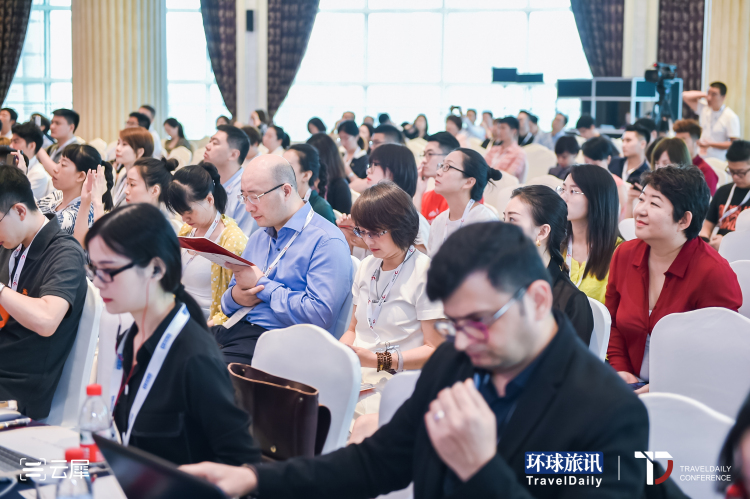ChinaTravelNews, Ritesh Gupta – China’s tech-savvy consumers navigate a digital ecosystem that is not only unique but also continues to evolve.
The prowess of China in the digital domain and how the same is propelling the digital commerce pie is being followed everywhere. China already accounts for more than half of the global e-commerce pie. According to a recent report by eMarketer, top global e-commerce market will be China, with $1.935 trillion in e-commerce sales. This is projected to be three times greater than the U. S. (at No. 2 with $586.92 billion).
The market is huge but the booking funnel isn't easy to comprehend with rising fragmentation in content and shopping options in China.
"It (digital media/ shopping ecosystem in China) is more complicated than ever. So travel advertisers have to re-assess the balance of their paid, earned and owned media. Plus, the attention span of a traveler is going down. It, too, needs to be incorporated into media buying and planning," said Stewart Li, President, Joint Business Partner at iPinYou. He was one of the judges for the TravelDaily China's Digital Travel Awards, held in Shanghai today.

Stewart Li, JBP President, iPinYou
New developments such as ByteDance's Toutiao search initiative, the rise of social e-commerce apps or Meituan exploring opportunities in grocery retail, it means that content and shopping features are becoming more common in various apps/ ecosystems, and this only is going to toughen the task of travel e-commerce merchants in a mobile-first market like China.
Ming Foong, Regional Managing Director, Asia, Travelport acknowledged the same and mentioned that mobile commerce in China is quite advanced, supported by well-established set up for mobile payment, fulfillment support and high mobile device ownership and usage. So companies need to deal with evolving mobile shopping trends and must respond swiftly. "Some of the traffic avenues, such as the ones related to messaging, micro-blogging, short-videos etc. are new methods of engaging the users, different to traditional marketing channels. Chinese marketers have to leverage these developments to really change the shopping experience," said Foong.
Travel shopping - simpler or harder?
Imagine a scenario, where a traveler can avail a package for a hotel plus flight via Ctrip.com or can buy a hotel plus dining deal from Meituan?
There are mixed views regarding how such varied choice or the entry of new players is impacting the shopper.
"We have many online travel platforms booming in this new era which can offer all the products related with one travel (or trip) to make the shopping simpler," mentioned Fajin Hu, Senior Manager, E-commerce, Air China.
"Travel shopping is getting harder for the consumer due to the explosion in choice," said Foong. To accentuate on his point, he referred to different merchant options, price points, suppliers, mode of transport options etc. Foong further added that the growth of the travel industry in China will continue to encourage new competition and entrants.
6 key takeaways for excelling in digital commerce
Be astute with media buying and planning: Navigate the walled gardens that exist in the digital ecosystem. Act on data (data from different sources such as ecosystems and working on cross-platform integration) and assess how to connect with travelers across different devices in real-time moments that resonate. Also, evaluate the impact of media options and how it impacts decision-making. For instance, as Google points out, rather than thinking of search and video as two distinct channels, use them together as critical resources on their path to purchase. At the same time, brands need to sustain robust positioning, and technology doesn't change that.

Focus on data platforms: Li added that travel advertisers solve the challenges of bringing data together from various sources by managing their own customer data platform (CDP). Such platforms mark interactions from anonymous customers and retroactively tie that data to a customer once it is identified. These are complementary to a data management platform (data sources are Cookies and segmented audience IDs). DMP data, when ingested into a CDP, helps to improve segmentation.
Be precise with your mobile offering: In a recent interview with TravelDaily China, Amadeus asserted that Chinese travelers are mobile-first or mobile-only, even for transactions. This has implications on the amount of relevant content that can be displayed, and the speed required to display this content, all of which greatly impacts conversion. Also, ensure consumers don't get ‘lost’ with too much choice.
Focus on trust and recognition: Foong highlighted that keeping the end-user in mind and ability to service their needs in the least painful way will be a key to success. "Delivering a trusted, personalized experience... If I am a repeat customer, and the merchant recognized my preferences, recommends me the most relevant offer with a great sense of value, is the best motivator for me to buy," he said. Citing an example, he said, "I was stranded at an airport due to an unexpected flight cancellation. Using my mobile to search, detecting my location automatically, a hotel booking site was able to recommend options that I can get to conveniently. It seemed like a small gesture, but it helped in a stressful situation."
Step up relevancy: With travel being an infrequent buy, organizations like airlines are trying to make the most of the digital ecosystem to stay relevant. For instance, to increase the utility of its loyalty currency, Air China chose to engage its loyal shoppers use their miles on 3rd party sites. Air China is allowing members to shop for domestic flight tickets on Ctrip using mileage and cash. Similarly, China Southern has been allowing its loyalty program members to spend their miles offline and online with partners. This is for several product categories - food, beverages, supermarket and even e-commerce sites/ platforms.
Think like a traveler: Capitalizing on social e-commerce and counting on data and analytics for evoking positive response from travel shoppers was recommended by a mobile marketer from China. Citing an example, he said, it is time for travel e-commerce players to "act on algorithms related to content/ offer recommendations, ones that are linked with one's social connectors".




